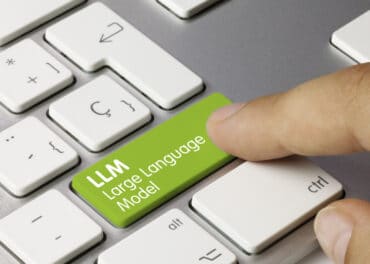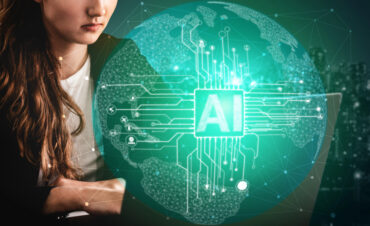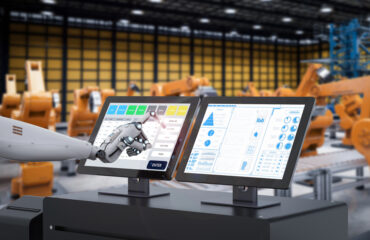
MBAs educated today using methods from the past may not be prepared for jobs of the future.
Many continuous intelligence (CI) applications rely on the wide-scale use of embedded artificial intelligence (AI) technology. The question remains: Are businesses ready for AI?
Leading business schools are trying to prepare their graduates for the impact of AI and the way it will change the way businesses operate. A recent global study, “Implications of Artificial Intelligence on Business Schools and Lifelong Learning,” conducted by UNICON (the Consortium for University-based Executive Education), found that efforts are mixed across the globe.
See also: Skills Gap May Slow Down Real-Time Enterprises
The concern is that with the advent of mainstream use of AI in business processes, MBAs educated today using methods from the past may not be prepared for jobs of the future. A commentary on the findings by Anne Trumbore, senior director of Wharton Online, a strategic digital learning initiative at the Wharton School of the University of Pennsylvania, and one of the study’s co-authors, noted:
“Schools across the globe are running multiple pilots with different technologies, such as RPA (Robotic Process Automation), chatbots, IBM Watson, and others. A number of schools have created robust cross-collaborations with both corporations — such as Microsoft and IBM — as well as with other schools on campus, particularly engineering and computer science.”
However, the approach at most business schools is mostly cautious in adapting management education to satisfy the coming needs of students. While a cautious approach makes sense when addressing the impact of new developments in many cases, it may not suffice when dealing with the impact of AI. A discussion paper developed by the McKinsey Global Institute noted the expected rapid impact of AI:
“Skill shifts have accompanied the introduction of new technologies in the workplace since at least the Industrial Revolution, but adoption of automation and artificial intelligence (AI) will mark an acceleration over the shifts of even the recent past…These changes will require workers everywhere to deepen their existing skill sets or acquire new ones.”
Changes brought on by AI in the workplace will result in nearly 400 million workers globally changing their occupations within the next 10 years. Trumbore noted that “as AI and related technologies displace jobs and workers, traditional business-school curricula will need to be updated to provide students with the skills they need to manage and lead in a rapidly changing world. AI-augmented roles will require workers with stronger skills in areas like ethics, leadership, emotional intelligence, and change management.”
Addressing the AI Skills Gap
AI adoption by businesses could be slowed due to the lack of qualified workers. Many businesses believe they need AI, but one of the most common issues is finding talent, understanding its usefulness, and having a deployment plan.
In an annual report on jobs of the future, LinkedIn said roles in artificial intelligence are continuing to increase, as more industries look for people with those skills. With more businesses implementing AI in their business, LinkedIn also sees soft skills as becoming an essential part of an employee’s portfolio. This goes to the heart of the issue mentioned above about needing workers with stronger skills in ethics, leadership, and other areas.
As a recent RTInsights article noted: “Gaining competitive advantage with the Internet of Things, artificial intelligence, and all the other state-of-the-art intelligent technologies, doesn’t come from relying on systems and machines. It’s going to take a well-trained, highly collaborative workforce for technology to fall into place. Otherwise, you are only dropping expensive technology on top of a moribund organization…Business leaders need to invest more in creating a future-ready workforce.”
Another consideration related to the skills gap is the way people will be trained to interact with machines and systems. Advanced technologies require people who understand how they work and can innovate, develop, and adapt them, according to the McKinsey Global Institute.
Employees’ abilities to be productive within a highly connected and intelligent environment will stem from their ability to work collaboratively with digital workers to accomplish tasks.
Other industry studies have come to similar findings about skills-related issues on the technical side. For example, one recent study noted the need for skills that go beyond the basics of programming to embrace a deep understanding of digital tools, from data collection to analytics and real-time feedback directly to the operating environment. The top five future skills required to support digital transformation include:
- Digital dexterity, or the ability to leverage existing and emerging technologies for practical business outcomes
- Deep understanding of modern programming or software engineering techniques
- Data science
- Connectivity
- Cybersecurity
Educating Future Business Leaders
Perhaps the most important finding in the plethora of industry studies about AI’s impact on business is the need for business leaders equipped to embrace the new technology and address its challenges. Trombone noted: “Rather than letting AI’s risks become a barrier to adoption, business schools can take the lead on developing a coalition for shared governance, empowering faculty, talented staff, students, and experts to work together to develop school and university policies and solutions to address these concerns.”





























